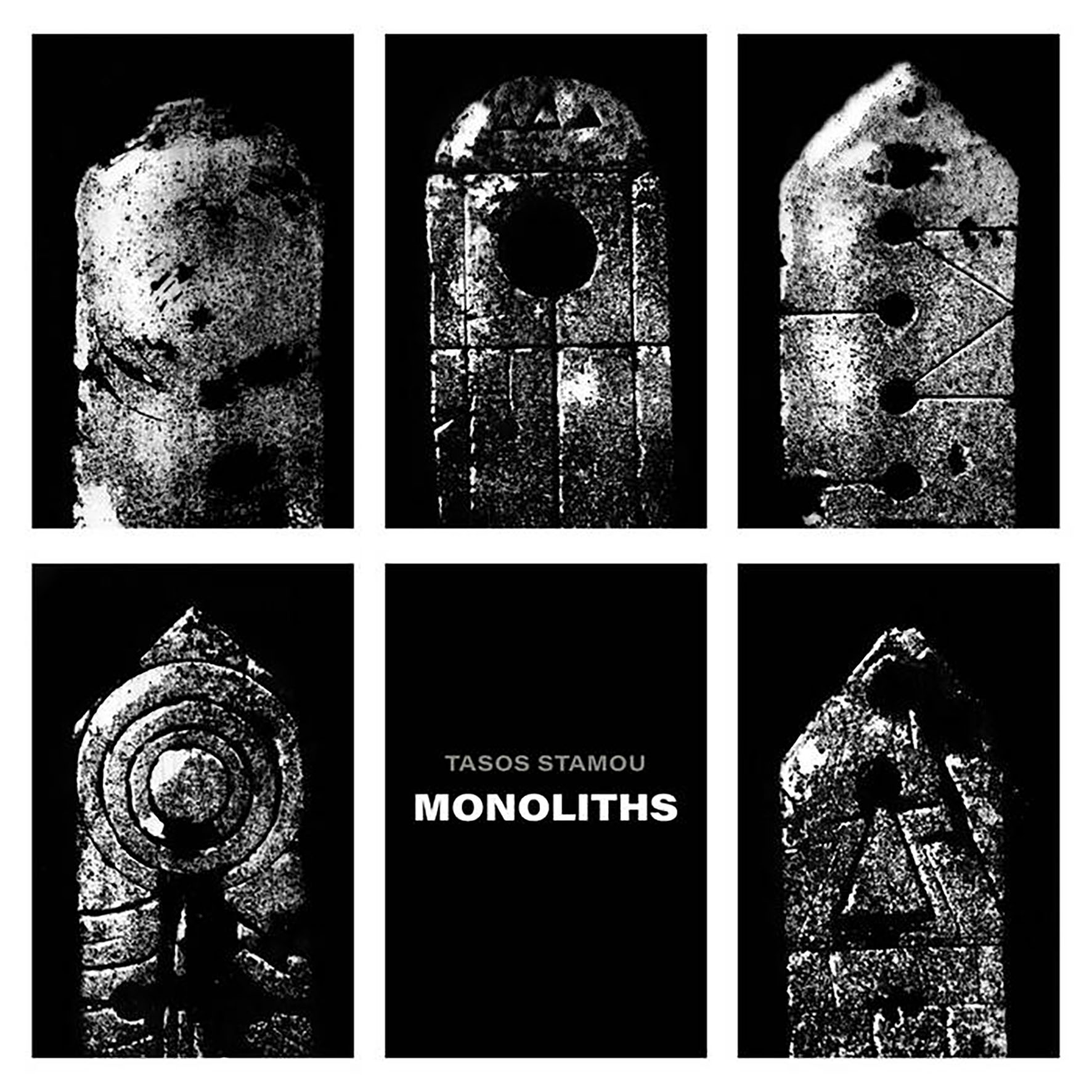 Discovering this London-based composer's adventurously psychedelic collages of traditional Greek music was one of 2021's great musical pleasures for me, so I was very eager to hear this ambitious double album follow up to Antiqua Graecia. As expected, it is a characteristically wonderful and unusual release, but it is also marks a detour away from Stamou's impressive run of Greek-themed albums. The theme of the aptly titled Monoliths is instead Stamou's attempt to "collide" the two sides of his working methods: live performances and studio work. By my estimation, it was a very successful collision, but it was mostly a behind-the-scenes one, as I would be hard pressed to determine where one approach starts and another begins. As a result, the more immediate and striking theme of the album for me as a listener is that each piece feels like an extended experiment in crafting an immersive, complexly layered sound world from just a single recognizable instrument. At least, that is how Monoliths unfolds for its first half, as the bottom drops out of the album's hallucinatory feast of bells, organs, and steel drums to reveal a considerably more processed, abstract, and psychotropic second hour of drone-damaged mindfuckery. That approach admittedly makes Monoliths a bit less accessible than some of Stamou’s more conventionally melodic work, but serious heads looking for a deep and sustained dive into otherworldly psych meditations will likely love this immersive tour de force.
Discovering this London-based composer's adventurously psychedelic collages of traditional Greek music was one of 2021's great musical pleasures for me, so I was very eager to hear this ambitious double album follow up to Antiqua Graecia. As expected, it is a characteristically wonderful and unusual release, but it is also marks a detour away from Stamou's impressive run of Greek-themed albums. The theme of the aptly titled Monoliths is instead Stamou's attempt to "collide" the two sides of his working methods: live performances and studio work. By my estimation, it was a very successful collision, but it was mostly a behind-the-scenes one, as I would be hard pressed to determine where one approach starts and another begins. As a result, the more immediate and striking theme of the album for me as a listener is that each piece feels like an extended experiment in crafting an immersive, complexly layered sound world from just a single recognizable instrument. At least, that is how Monoliths unfolds for its first half, as the bottom drops out of the album's hallucinatory feast of bells, organs, and steel drums to reveal a considerably more processed, abstract, and psychotropic second hour of drone-damaged mindfuckery. That approach admittedly makes Monoliths a bit less accessible than some of Stamou’s more conventionally melodic work, but serious heads looking for a deep and sustained dive into otherworldly psych meditations will likely love this immersive tour de force.
The opening "Bells Drone" sounds deceptively like it could be layered field recordings of wind chimes at first, as bells of different sizes amiably jangle and clang for couple minutes before any real evidence of Stamou's hand starts to emerge. Soon, however, some tones start to linger supernaturally and the mood darkens into uneasy shadows of dissonance. It is quite a wonderfully hallucinatory and entrancing piece, evoking an ancient ritual in a cavernous subterranean temple revealed behind a dissolving reality. While it is the shortest piece on the album at a mere 13 minutes, it is nevertheless a solid representation of the album’s first half: a simple and minimal theme gradually transforms into a vividly multi-dimensional dream world. On "Chord Organ #2," for example, an organ drone slowly evolves into a Catherine Christer Hennix-esque nightmare of dark harmonies before unexpectedly resolving on a note of sundappled transcendence. "Steel Drum Drone," on the other hand, steadily becomes something akin to a lovesick tropical Steve Reich. That one is another favorite, as I am quite impressed with how Tasos weaves together patterns of plinking and bleary steel drum melodies into a thing of woozy multi-layered beauty.  In fact, I love every single one of the opening three pieces, but they turn out to be a mere prelude to two pieces in which Tamou goes totally bananas. In the first, "Supernormal," Stamou mingles a chirping electronic drone with squealing and sliding strings en route to an harrowing mindfuck that calls to mind a goddamn demon summoning (the final stretch of oscillating synth thrum is especially choice). The closing "Synapse" improbably features some even more gnarly sounds, passing though such colorful stages like "menacingly gelatinous bass throb," "an undead gamelan ensemble wanders the deserted streets in search of their next victim," and "a simmering and intense prepared piano performance over quasi-industrial rhythmic loops." This is an absolute feast of an album: five great longform pieces in a row spanning nearly two hours. Most days, I admittedly prefer the more meditative/ritualistic first half to the more nightmarish second half, but Stamou was swinging for the fences with every single piece on this album and the result is a monolithically stellar release.
Samples can be found here.
Read More

